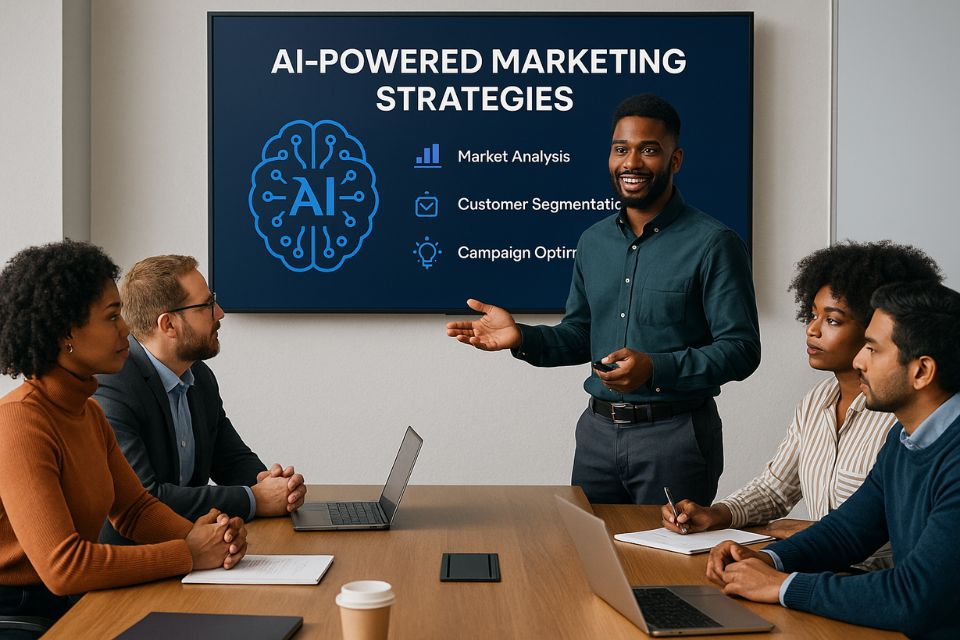Artificial Intelligence (AI) is the buzzword of the decade, promising businesses smarter decisions, increased efficiency, and streamlined operations. But here’s the reality – Many companies dive in headfirst—without a plan—and end up wondering why AI isn’t delivering the magic they expected.
So, what’s the #1 mistake organizations make with AI?
They treat it like a plug-and-play tool rather than a long-term investment.
Why Does This Keep Happening? The hype around AI makes it tempting to jump on board quickly. Companies see competitors leveraging AI and think, “We need to get in on this now!” But instead of developing a clear strategy, they implement AI haphazardly—leading to wasted money, frustrated employees, and underwhelming results.
Here’s why AI initiatives often flop:
- No Clear AI Strategy – AI isn’t magic. It needs a purpose. Many companies invest in AI without defining what problems it should solve or setting measurable goals. Without a roadmap, AI tools end up underutilized or misapplied.
- Lack of Employee Training – AI adoption isn’t just about software; it’s about people. Expecting employees to “just figure it out” leads to confusion, resistance, and inefficiency. A team that doesn’t understand AI won’t get the most out of it.
- Over-Reliance on Automation – AI is powerful, but it still requires human oversight. Some organizations assume AI can replace human judgment entirely—leading to costly mistakes.
- Ignoring Change Management – People fear what they don’t understand. If employees aren’t reassured about how AI will enhance their roles rather than replace them, adoption becomes an uphill battle.
Here’s why AI initiatives often flop:
- No Clear AI Strategy – AI isn’t magic. It needs a purpose. Many companies invest in AI without defining what problems it should solve or setting measurable goals. Without a roadmap, AI tools end up underutilized or misapplied.
- Lack of Employee Training – AI adoption isn’t just about software; it’s about people. Expecting employees to “just figure it out” leads to confusion, resistance, and inefficiency. A team that doesn’t understand AI won’t get the most out of it.
- Over-Reliance on Automation – AI is powerful, but it still requires human oversight. Some organizations assume AI can replace human judgment entirely—leading to costly mistakes.
- Ignoring Change Management – People fear what they don’t understand. If employees aren’t reassured about how AI will enhance their roles rather than replace them, adoption becomes an uphill battle.
How to Avoid This Costly Mistake
AI has the potential to revolutionize businesses—but only if it’s implemented thoughtfully.
Here’s how to do it right:
- Start with a Clear AI Roadmap – Before adopting AI, ask yourself – What specific problems do we want AI to solve? How will success be measured? AI should align with business goals, not be adopted for the sake of it.
- Train Your Team for Success – AI is only as effective as the people using it. Proper training ensures employees understand how to leverage AI tools and work alongside them confidently.
- Integrate AI Thoughtfully – AI should enhance human capabilities, not replace them. Identify areas where AI can automate repetitive tasks, freeing employees to focus on higher-value work like strategy and decision-making.
- Work with an AI Expert – An AI consultant can guide implementation, help customize AI solutions, and provide ongoing support to ensure success.
AI isn’t just about technology—it’s about strategy, people, and execution. Companies that take the time to plan their AI adoption will see real benefits: increased productivity, reduced costs, and a competitive edge in their industry.
The question isn’t whether your business should adopt AI, but how you do it. Download our AI Cheat Sheet to get started!
Let’s ensure your AI strategy is set up for success! Book a call now to discuss your next move.




